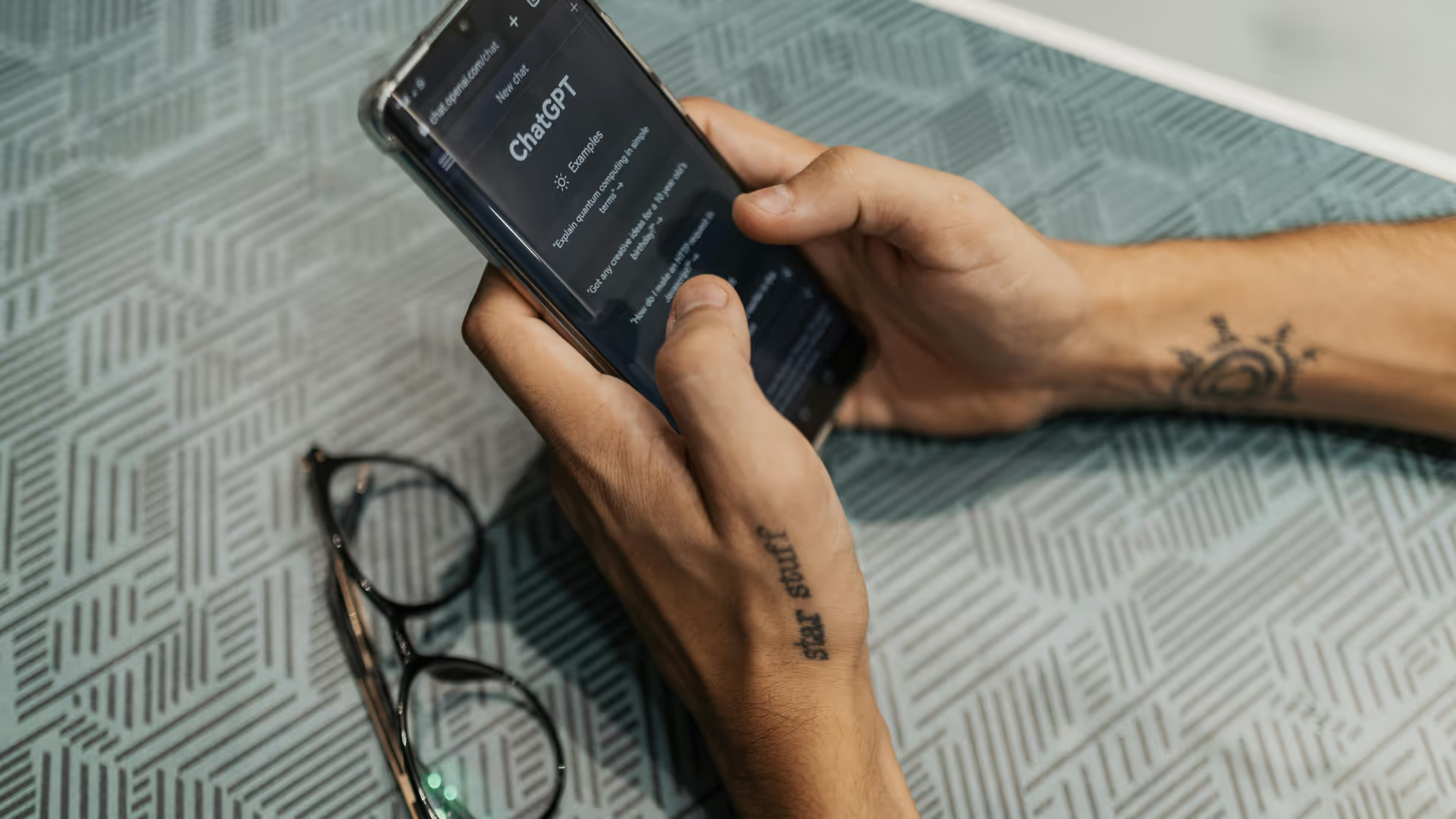In our latest 'In The Spotlight' series, we sat down with Caroline Keylock, a seasoned strategist and business leader, and delved into the evolving dynamics of today’s multigenerational workforce, exploring the challenges and opportunities that arise when different generations come together in the workplace. Our conversation touches on the impact of varying values, priorities, and belief systems on workplace culture, as well as the importance of inclusive policies that cater to diverse needs. We also look at how businesses can adapt to these shifts and leverage the unique strengths of each generation to drive innovation and growth.
Caroline, great to have you with us! Can you please explain a little more about your background, and what you’re up to at the moment.
Thanks for having me - so my background has developed around strategy and I currently run three businesses that help people make ‘confident leaps’. My own strategy consultancy, working with founders in fashion, beauty, luxury and lifestyle; an inspiration business, LookUP which helps clients become better strategic thinkers, storytellers and community builders; and finally, Board Women, which helps 30+ women build confidence through the lens of Board Sports. Life is busy, but never dull, and all three somehow feed into each other every day.
What do you believe are the main challenges that businesses face when managing a multigenerational workforce?
I think we still struggle in business to understand that we have different lived experiences and reference points of how things are done in the workplace. This occurs across so many different facets beyond generation, but there is division happening between these layers of the workforce.
At one end you have a group of people who believe that they ‘struggled and had to fight for their place’ and see it almost as a rite of passage. At the other end you have a generation with, most likely, a healthier attitude towards work and life; and they are being seen as less hard working as a result. Add to that a period of work where we’ve all been finding our rhythm through new hybrid work practices and that lack of empathy is spilling over into discontent and misalignment.
In what ways do the values, priorities and belief systems of difference generations impact workplace culture?
I think even ‘workplace culture’ is morphing in terms of definition. If we take the marketing industry, the definition of workplace culture for those of us now in our 40’s and 50’s was led by social definitions. Free bars on a Wednesday, early finish on a Friday, additional office perks and days out.
This has transformed for so many reasons. We work in different spaces, places and time zones. We forge relationships in different ways. There’s an expectation of a more purpose led culture creation that is led bottom up as well top down. Ultimately culture creation in the workplace is something that builds through everyone feeling they can contribute to it and are seen and heard, but this is a big shift for some leadership teams who have grown up in a different time.
How do you think companies can ensure fair and inclusive policies that cater to the needs of all age groups?
Ensuring a wide array of individuals with different experiences of agency and business life are included in the process is the first step. They need to feel that their voices are heard. These policies need to cater to a wide set of needs, and therefore need to be based on clear principles that everyone buys into (with a level of trust afforded to allow flexibility). They can’t be restrictive mandates, as it doesn’t work across so many variables.
There’s also a danger in some policies that are linked to generation, with pigeon-holing as the result. This stands out most for menopause support. It’s a crucial area for organisations to address and for teams to understand as 50% of us will go through it and need support. But there’s also a danger that women of a certain age then become associated with menopause and menopause alone, rather than everything else that we bring to the table.
Management skills within teams become crucial as their work is to bridge the gaps of the different generations and their varying needs (within generation and across other factors). They need more support, as it’s often a skill that is assumed to come naturally. Organisations also need to support managers and teams on how to implement hybrid working practices effectively, as the flexibility it affords boosts successful multi-generational working.
Policies are one thing, but how they are put into place and lived and breathed from the management down is the real proof of how fair and inclusive an organisation is. People aren’t stupid. They can see the gap between policies and reality, whether it’s diversity, sustainability, or age inclusivity.
Are there any brands or agencies that you think have put in place policies or procedures that support multigenerational workforces?
Hoxby is the best example I can think of as an agency which genuinely caters to the needs of every generation. It’s ‘workstyle’ theory in terms of how its teams organise their working practices is the direction that every agency should be looking in. It’s so much more inclusive and means that they get access to some of the best talent as a result.
Noon is a brilliant platform for women later in life that celebrates ‘Queenagers’ and is doing great work to keep talented women in the workforce and to demonstrate the value that they bring. SmartWorks is a charity that similarly helps bridge women back to the workforce and give them confidence when they most need it.
NABS has some great advice on the challenges of multi-generational workforces and mental health that are worthwhile for organisations to engage with as well.
How does your consultancy help businesses adapt for the Future of Work with regards to multigenerational working?
At LookUP, we work with a lot of organisations who are working to reset their culture, whether It’s through forced change (restructure, redundancy), because they are experiencing cultural breakdown, or simply an annual exercise to inspire and empower their teams.
Our ‘CommunityBuilder’ sessions are designed to recognise that your internal community is the most important one that you have, and the different skills and lived experiences your teams have are your superpower. We work with stakeholders across the organisation to identify existing community challenges, identify the natural communities that are emerging internally, and how we can make the value exchange between employer and community work hardest.
Multi-generational teams are often core to this process: established leaders need new inspiration to challenge their perspectives and work practices; and younger generations need more access to the experience and insight that more senior people can bring. So much value can be gained by setting up space for these audiences to be better connected.
How can organisations leverage the unique strengths of each generation to drive innovation?
The first thing we need to do is step away from the inter-generational stereotyping that occurs (and I recognise I’ve had to make broad platitudes in this piece even) and really listen and understand each other. Innovation processes can’t be in place until we genuinely hear what we can all bring to the table in terms of experience and POV.
There are two stereotype that feel particularly damaging, and I hear them daily. “They don’t know how lucky they are” about younger audience who want to leave work on time and have commitments outside the office. This drives a perception of laziness and lack of ambition in a younger generation that is fundamentally untrue, and it doesn’t leave space for audiences who have less power in the workplace to talk about their mental health or issues they are having, for fear of exacerbating this perception.
The second is that people who are 40+ (yes ‘older’ audiences suddenly fall into this bracket, which at almost 47, I find terrifying) are ‘out of touch’, or unable to innovate or change. Added to this, many organisations stop investing in their more experienced teams at this age, which is a miss, because up-skilling them provides benefits that trickle through the entire organisation.
How do you foresee the dynamics of multigenerational workforces evolving in the next decade?
There’s a shift occurring at the older end which I welcome. Communities are coming together to question why we are metaphorically ‘binning’ people when they hit their 40’s and 50’s, when these same audiences bring 20-30 more years in a role and can hit the ground running. The shift of perception isn’t happening fast enough in my opinion, and the positive stories are often outside the agency space, but it’s happening.
I’d love to see more communities that actively bring multi-generations together in organisations based on areas of interest or expertise, but not delineated by their years of experience. We all have so much to learn from each other, but it does need to be more proactively actioned. I think there are more creative and effective ways to bring these generations together, such that we stop just pigeon-holing people by their age.
I would love to say that we will continue to move to more flexibility in the workplace that caters to the needs of all generations and diverse groups, but I fear that we are shifting back in the wrong direction as we all run back to the office. We’ve written a lot in this space, and it’s a big concern.
Tell us about the work LookUP are doing to support businesses and talent to tackle the topic of multigenerational workforces
We have a core thought that much of our approach is based on and that is ‘Old Dogs can Learn New Tricks’. At launch we identified a gap in the industry for supporting & upskilling senior teams, due to the assumption that already know their stuff. It’s a flawed perception, because our industry moves on at such pace, and we can always lift our game by widening our points of reference.
We have been active in working with people who have been made redundant at the latter stages of their careers, running free sessions to help them harness their own story and use it to break through into new spaces in the industry.
At the other end of the scale, we have worked with up-and-coming teams with networks like Bloom and big agency networks, helping to expand pitch teams to more junior members, help them find their voice and their story, and to create more strategic relationships with clients.
For us – multi-generational approaches are a win-win. We all need a more flexible mindset, to appreciate each other’s strengths, resolve the culture clashes between generations. We all need to try to simply, LookUP more. If you want to join the LookUP substack, then you can do here.
If you want to find out more about unlocking the potential of multigenerational workforces, then read our latest blog with the latest insights from our 2024 Salary Census, here.







.avif)


